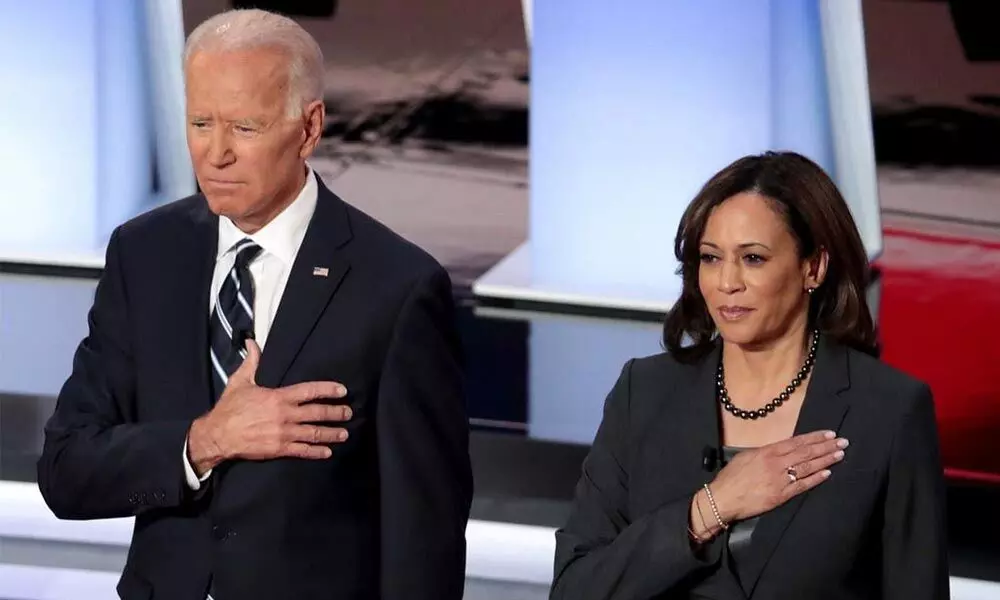Can Biden-Harris admin help tourism revive?
Biden’s focus on curbing the pandemic will set a renewed example for the world and set the stage for a return to travel
image for illustrative purpose

Joe Biden and Kamala Harris have kick started the revival of tourism. Things get better immediately, as President Biden will overturn Trump's ban from Muslim-majority countries through executive order just hours after the inauguration.
Biden's $1.9 trillion injection plan for the U.S. economy to battle the impact of the pandemic will provide assistance to businesses and consumers, providing a lift to gross domestic product that is certain to benefit the travel sector.
And Biden's laser focus on curbing the pandemic will ultimately set a renewed example for the world and set the stage for a return to travel.
The Biden-Harris administration also plans to order a mandate of mask-wearing on federal property and for interstate travel, and the country will see its first semblance of a proposed vaccine distribution plan.
This push to commit to travel includes rebuilding America's image abroad and driving international tourism to the U.S., which may come easier given Biden is no stranger to governments around the world.
Tourism is important to the US as there was a $59 billion travel trade surplus from international visitors in 2019.
Airlines are also looking towards the new administration for support of the travel recovery. To that end, trade group Airlines for America (A4A) encourages the new administration to adopt a standardized testing regime to restart international travel and replace the remaining country-specific entry restrictions.
Other airlines and Wall Street analysts also anticipate a return in traveler confidence — at least domestically - by summer. This should support a sustained recovery in both schedules and passenger numbers during the second half of 2021. However, the outlook is not without caveats: neither international flying nor corporate travel is expected to return in significant numbers by year-end.
With countries around the world now rolling out vaccines against the Covid-19 virus, the Committee noted that this opens a critical window in the fight against the pandemic and to promote the safe resumption of international travel. Members highlighted the importance of stepping up coordination, within the framework of the International Health Regulations, of vaccination certificates to ensure the implementation of common, harmonized digital related travel principles, protocols and documents.
This would be in line with the work being carried out by the World Health Organization (WHO), which has reported at potential applications of digital technology to enable safe international travel and facilitate arrivals and departures.
UNWTO Secretary-General Pololikashvili said: "The rollout of vaccines is a step in the right direction, but the restart of tourism cannot wait. Vaccines must be part of a wider, coordinated approach that includes certificates and passes for safe cross-border travel. In the longer-term, we also need to restore confidence in tourism. The United for Travel campaign will help us achieve this, providing a clear and strong message that safe tourism is now possible."
Based on the current evidence, UNWTO expects international arrivals to decline by 70 per cent to 75 per cent for the whole of 2020. In this case, global tourism will have returned to levels of 30 years ago, with 1 billion fewer arrivals and a loss of some US$ 1.1 trillion in international tourism receipts. This massive drop in tourism due to the pandemic could result in an economic loss of US$ 2 trillion in world GDP.
Secretary-General Pololikashvili adds: "A coordinated approach to easing and lifting restrictions on travel whenever is it safe to do so is essential. This will not only open destinations up to tourism again, but clear and consistent rules between countries will go a long way towards building back trust in international travel and boosting consumer confidence."
The extended scenarios for 2021-2024 presented by the United Nations specialized agency for tourism point to a rebound by the second half of 2021. Nonetheless, a return to 2019 levels in terms of international arrivals could take between two-and-a-half and four years.
Tourism is one of the largest employers in the world. In India, it contributes almost 10 percent to the economy. The government needs to ensure that there is a comprehensive policy in place to help the sector grow,
We have more than 24 million Indian tourists who travel abroad and spend almost $25 billion every year. We need to take steps to ensure that we manage to retain or give them options to visits places in India.

